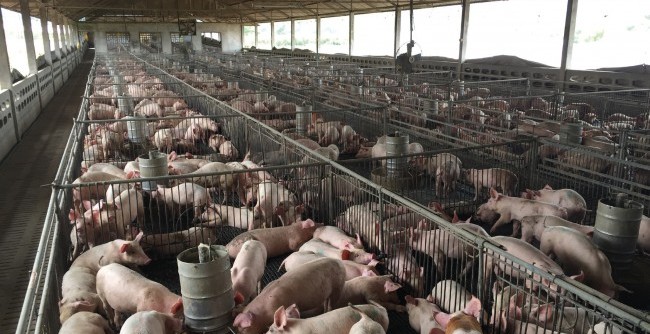The US Department of Agriculture (USDA) has announced a new swine testing programme as it steps up its defences against African swine fever (ASF).
The Animal and Plant Health Inspection Service (APHIS) will work with the swine industry, the states, and veterinary diagnostic laboratories on a major testing programme, as ASF testing is added to its existing classical swine fever surveillance.
Samples will now be tested for both diseases from the same high-risk animals, using the same overall process. The department and its partners expect to begin ASF surveillance efforts within weeks, aim to implement the full surveillance plan over the course of the US spring.
The surveillance effort will test samples, for example, from sick pig submissions to veterinary diagnostic laboratories; sick or dead pigs at slaughter; and pigs from herds that are at greater risk for disease through such factors as exposure to feral swine or waste feeding.
In addition, USDA will work with state and federal partners to identify and investigate incidents involving sick or dead feral swine to determine if they should be tested for ASF or other foreign animal diseases.
Greg Ibach, Undersecretary for Marketing and Regulatory Programs, said: “While we are confident that our overlapping safeguards will continue to keep ASF out of the United States, an enhanced surveillance program will serve as an early warning system, helping us find any potential disease much more quickly.
“It will also minimise virus spread and support efforts to restore trade markets and animal movements as quickly as possible should the disease be detected.”
The surveillance testing of commercial swine herds is an addition to USDA’s overall African swine fever prevention effort, including:
- Working with officials in Canada and Mexico on a North American coordinated approach to ASF defense, response, and trade maintenance;
- Working with US Customs and Border Protection at ports of entry, paying particular attention to cargo, passengers, and products arriving from China and other ASF affected countries;
- Increasing detector dog teams with U.S. Customs and Border Protection to sniff out illegal products at key U.S. commercial sea and airports;
- Collaborating with states, industry and producers to ensure everyone follows strict on-farm biosecurity protocols and best practices (including for waste feeding in states where that is allowed);
- Restricting imports of pork and pork products from affected countries;
- Coordinating closely on response plans with the U.S. pork industry, producers and States to be ready should a detection ever occur in the United States; and
- Expanding the testing capabilities and testing capacity of the National Animal Health Laboratory Network.
The US National Pork Producers Council thanked USDA for the additional measures being taken. “US pork producers are already suffering as a result of numerous trade disputes with top-importing countries, and an outbreak of ASF in the US would be devastating. With no vaccination available, prevention is our only defence,” it said.




